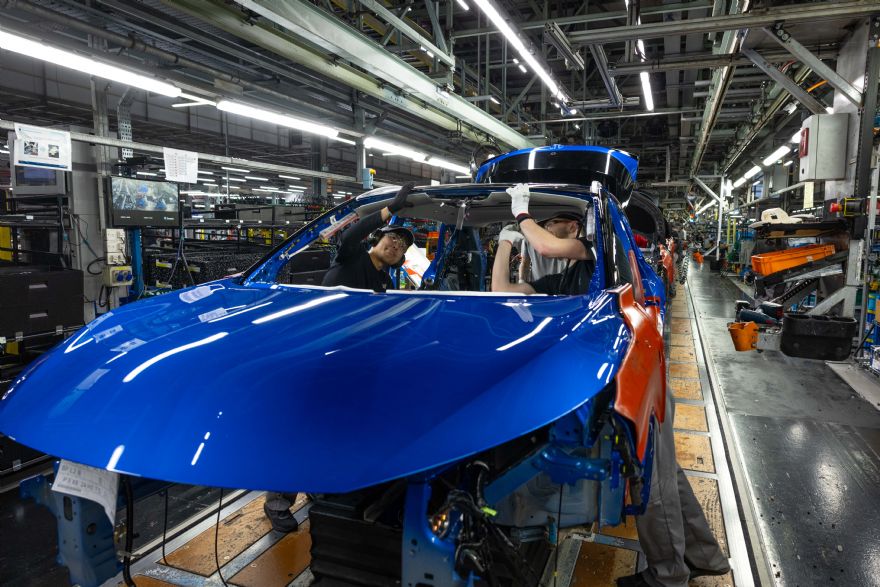
According to recent data published by the
Society of Motor Manufacturers and Traders (SMMT), UK car manufacturing in April fell by 7% (compared to April 2023), down to 61,820 units, marking the second consecutive monthly decline and ‘reflecting factory adjustments in preparation for next generation models and their electrified powertrains’.
At 14,021 units, output for the UK rose by 19.8% but failed to offset a 12.7% decline in production for overseas buyers to 47,799 units. The European Union (EU) took 55.8% of car exports, followed by the USA (15.2%), China (5.4%), Turkey (4.2%) and Australia (2.8%). Electrified vehicle volumes (battery electric, plug-in hybrid and hybrid) represented 40.5% of output, up from 37.7%, of all production, with manufacturers producing a combined 25,031 units, a rise of 0.1% on the previous year.
The SMMT’s chief executive Mike Hawes said: “Another month of falling UK car production was expected given the significant transformation underway within factories as manufacturers re-tool to produce new models. Keeping this progress on track is essential and requires favourable industrial and market conditions. The next Government must ensure the conditions are right not just for the competitiveness of UK manufacturing, but for the investment required to transition the sector to a ‘net zero’ future.
“The SMMT is calling for the next Government to adopt five key pledges set out in our Manifesto 2030 as part of a dedicated industrial strategy. These include: delivering low-cost zero-carbon energy; ensuring a skilled workforce fit for the future; securing free trade deals with existing and emerging markets; and backing the domestic market for new electric vehicles. Doing so would bolster the sector’s competitiveness, and given the regional importance of automotive manufacturing sites, drive economic growth and job prosperity across the country while delivering on environmental ambitions.”
Meanwhile, UK commercial vehicle (CV) manufacturing has recorded its best year to date (first four months) since 2010, despite a fall of 19.9% in April (the second consecutive monthly decline), with 8,413 vans, trucks, taxis, buses and coaches produced.
Mr Hawes said: “A second consecutive month of decline for British commercial vehicle production is disappointing, but with supply chain shortages likely to be temporary and BEV production still set to rise, we expect a return to growth in the latter half of the year. The sector remains in good health, however, thanks to strong demand from overseas markets.”